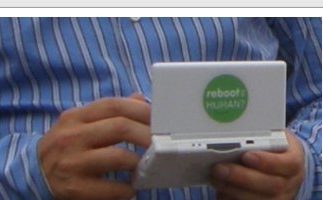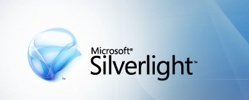In the beginning the digital world was a big wasteland, with scattered oases. These oases were called Bulletin Board Systems (BBSes), driven by “crazy” people that spent their savings on dial-up connections, so they could provide support for a local BBS oasis.
Episode IV: A new hope
And it was relatively quiet for a long long time.
Then something happened, the oases began “trading” information, and information began flowing between the oases, making it possible to talk to people from all over the world.
This was all being build by a volunteer workforce, and different languages were being spoken – depending on the software used to run the “oasis”. This meant that the different systems used to run the oasis, couldn’t really trade information between “borders”, and since it was all based on scheduled windows of information trade, due to the expensive dial-up connections, delivery of information was sometimes very slow, and could take many days.
“The Internet” changed all that. That was because it established “traffic-rules” that guide it. The rules are invented, or rather proposed and ratified through RFCs (Internet standards are suggested by so called RFCs – Request For Comments), in an entirely open review process, ensuring that information can flow freely. Another important difference between the rather disconnected world of the BBS oases, and the Internet, was that the Internet servers were always accessible, ensuring instant exchange of information.
Having established the traffic rules, the world could be “paved” with a computer network, driven by the military, research and governmental institutions of the world.
But it was still relatively quiet.
That was until 1991 when Tim Berners-Lee (TBL) came up with the simplicity of the Uniform Resource Locator (URL), that meant that all information could be refered to (linked to) using a simple string of text. You all know that as the address with the strange http:// in front. That is a URL.
HTTP is an acronym for HyperTextTransferProtocol – and HyperText documents are the documents that you download when you browse the web. HyperText Documents are formatted in a “language” called HTML (Hyper Text Markup Language). HTML is a pure text and human-readable document format, making it possible to apply attributes to text like bold and italics using nothing but a lowly text-editor, that usually comes bundled with the operating system (e.g. Notepad on Windows, TextEdit on Mac OS X and vi/EMACS on *UX).
TBL wrote the first web-browser, and the Internet instantly became usable. That was due to the intuitive document metaphor, and the fact that the web-browser ran under a user graphical interface, made away with the text commands, that was mostly used for navigating the web, before the web-browser was introduced.
Deployment of the web and e-mail applications was swift.
I remember talking for months with partners on how to trade information (exchange files). Usually we set up dial-up connections to local computers running either terminal emulation software with X, Y og Z-Modem protocols, or later more advanced things like cc:Mail.
Then suddenly, within the span of a few months in 1996, we all had Internet @ e-mail addresses – it was astonishing, and it’s really hard to believe that you had to send disks to your costumers a mere 10 years ago.
It didn’t take me long to discover the feature of the web-browser called “view source”, and that was how I learned HTML.
Episode V: The Empire Strikes Back
The Internet, and before that the BBSes, has always, despite it’s roots in the military, been a place for free-thinkers, and in parallel with the grass-roots, a number of commercial systems for online communications existed, CompuServer, Prodigy later AOL. They all relied on dial-up access – you know using the modems that made the whining fax-machine sounds – to their servers, and had expensive subscription-plans that made it possible to tap into a community of experts.
William Henry Gates The Third – amongst others – saw this clearly, and wrote about it, at great lengths, in his quite visionary book: “The Road Ahead”. Bill Gates saw the power of online services, and wanted to take the next version of Windows, Windows 95, to the next level, by providing seamless integration with an online service called MSN – The Microsoft Network. Microsoft also wanted to provide the entire infrastructure, including access-points and network access subscription plans.
Controlling the desktop entirely, MSN should have been a tremendous success, but at the same time, 1995, the Internet had gained critical mass, and MSN didn’t happen, and by the time “The Road Ahead” was issued, Bill Gates had realised that the Internet might actually become the ubiquitous network, “the information superhighway”, that he envisioned, and Bill Gates was getting ready to turn the supertanker, that is Microsoft, around.
While MSN was sitting idle, a number of implementations of the web-browser had been released, especially the company Netscape had success and had become the de-facto web-browser.
Bill Gates didn’t like that, he wanted Windows 95 to tap into MSN, and this was difficult, because Netscape, by default, sent their users to the Netscape home-page.
A leaked internal memo described the plan – “how do we leverage the fact that we own the desktop”? The answer was simple, bundle the browser with the operating system, and give it away – that will surely kill Netscape, since they charge for it.
And that was exactly what happened! Netscape lost the war, Microsoft had won, they owned the desktop, the browser (Internet Explorer market share topped at something like 95%) and MSN had finally found it’s market due to the IM client for MSN that is also bundled with the operating system.
And despite the fact that Microsoft actually was found guilty in monopolistic practices, they just kept on going, and the change of US administration in 2001, only meant that the judgement against Microsoft never really materialised, and didn’t account for more than a slap on the wrist.
The ability of Microsoft to change strategy was amazing, the supertanker did a 180 in a very short timeframe. Microsoft also managed to make Windows much more manageable, effectively killing off the concept of the Network Computer, the PC and Windows had grown up, and it became the cornerstone of the digital world.
Episode VI: Return Of The Jedi
But something surprising happened. Microsoft became lazy, complacent, and arrogant. Microsoft was also under constant attack from “terrorists” that targeted their operating systems, binding developer resources, that should be working on the next version of Windows, now known as Vista. Vista was supposed to be the long promised nirvana of Cairo, but constant delays and de-scoping of important features like WinFS, means that Vista ended up being little more than a point-release
Internet Explorer and Windows had been sitting idle for 5 years, the bugs in it becoming more and more annoying, and the security patches kept coming in, an ever increasing stream.
During that time Bill Gates also seemed to loose interest in Microsoft, focusing more and more on his reputation for posterity, being the greatest philanthropist in the history of humankind.
This relative absence of Microsoft meant that opportunities for alternatives opened wide. Netscape finally had success with their open source efforts, and released Firefox, the KHTML project from KDE (desktop environment for *UX) had been adopted by Apple with the Safari browser and now it’s even finding it’s way to Windows. The Opera browser runs great on basically anything from desktop computers over gaming consoles to cellphones, meaning that there’s an alternative browser even for embedded OSes, like Windows Mobile, Symbian and Nintendo DS.
Linux has also seen tremendous growth, and philantropic projects like Ubuntu has started spreading Linux to the desktop. Linux is no longer hiding in the back-office, and the dark rooms of the geeks.
Linux is also on the rise as an embedded OS, with Maemo and OpenMoko, and the amazing project XO, formerly known as One Laptop Per Child (OLPC), the brainchild of Nicholas Negroponte, that promises to bring computing to the children of the developing world, by thinking different.
I can’t wait for the children to start creating Wikipedia entries, blogging, sharing pictures, making music, digital art and writing books. Imagine what they can do when they grow up!
And with social web-applications and Wi-Fi access becoming universal, we don’t really need complicated OSes for our day to day computing tasks, and a new class of devices will help us shed the shackles of the anachronism, the desktop computer. If you doubt me, try to take a look at Flickr, it’s better at organising information, than your desktop operating system.
Another frontier is open standards, especially document standards are being debated. The closed standards are history, and no matter who wins the “format wars” (that I’ve written about earlier), completely closed de-facto standards for documents, is going to become a closed, and very dark, chapter in the history of computing.
The Jedi of the BBS has returned…
…may the Force be with you.
Free at last, free at last, God all-mighty we’re free at last!
ps. I know there’s episodes I, II and III, and I might write about the prequel – even though the Star Wars prequels weren’t that succesful – and Microsoft might be down, but they’re not out. I have tremendous respect for Ray Ozzie, the current Chief Software Architect at Microsoft, and the Internet Explorer team and the Mac Business Unit are doing great applications.
So there might also be a sequel: “Episode VII: Developers, Developers, Developers” – stay tuned – it will be fascinating – we do indeed live in interesting times.




